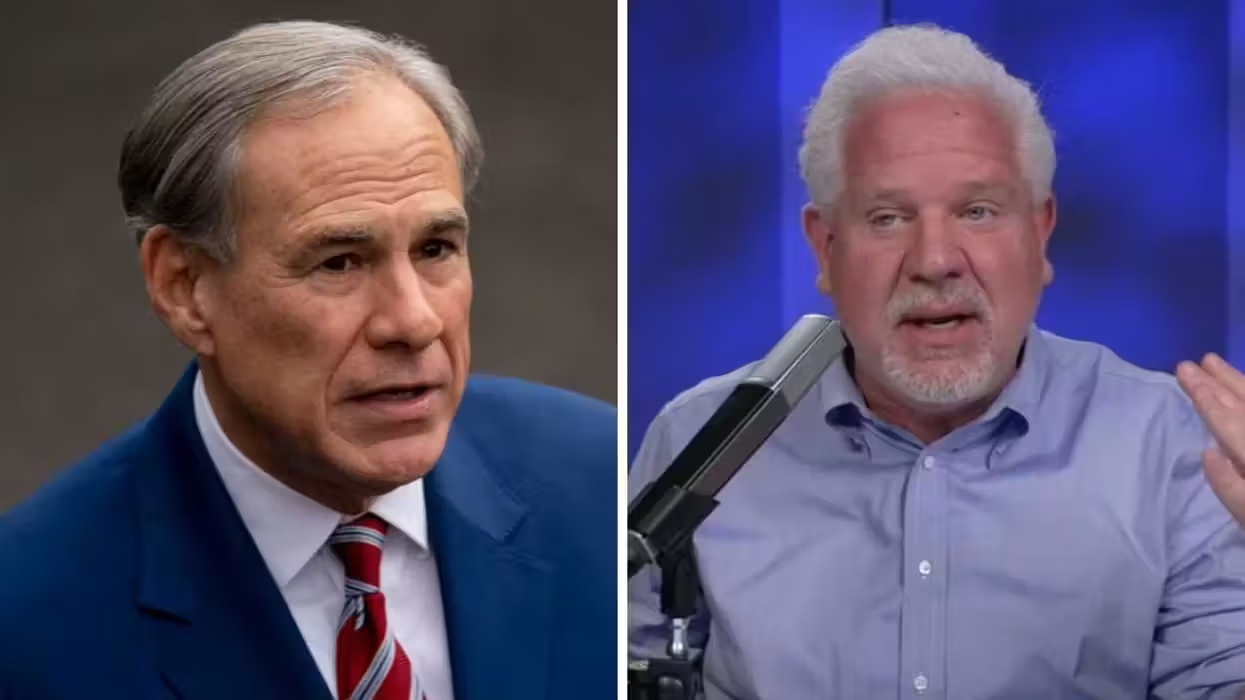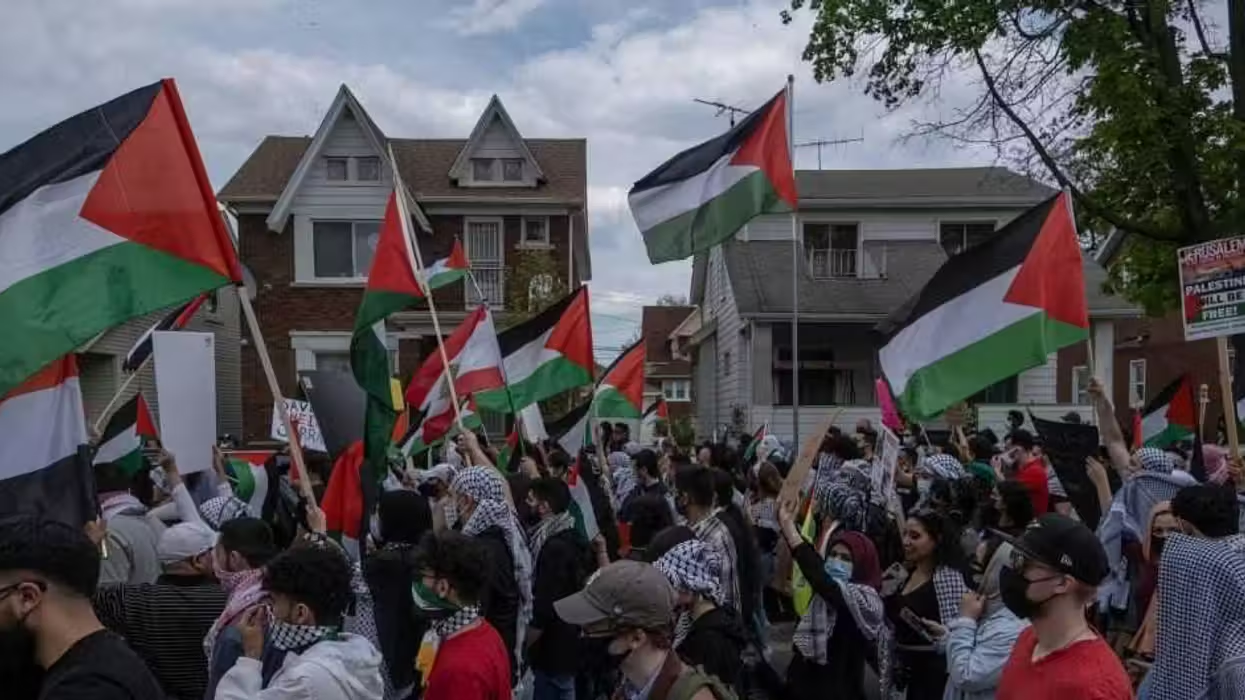KIEV, Ukraine (AP) -- Russia ordered 150,000 troops to test their combat readiness Wednesday in a show of force that prompted a blunt warning from the United States that any military intervention in Ukraine would be a "grave mistake."
Vladimir Putin's announcement of huge new war games came as Ukraine's protest leaders named a millionaire former banker to head a new government after the pro-Russian president went into hiding.
The new government, which is expected to be formally approved by parliament Thursday, will face the hugely complicated task of restoring stability in a country that is not only deeply divided politically but on the verge of financial collapse. Its fugitive president, Viktor Yanukovych, fled the capital last week.
 Russian President Vladimir Putin heads the Security Council focused on Ukraine in Moscow's Kremlin on Tuesday, Feb. 25, 2014. (AP Photo/RIA Novosti, Alexei Druzhinin, Presidential Press Service)
Russian President Vladimir Putin heads the Security Council focused on Ukraine in Moscow's Kremlin on Tuesday, Feb. 25, 2014. (AP Photo/RIA Novosti, Alexei Druzhinin, Presidential Press Service)
In Kiev's Independence Square, the heart of the protest movement against Yanukovych, the interim leaders who seized control after he disappeared proposed Arseniy Yatsenyuk as the country's new prime minister. The 39-year-old served as economy minister, foreign minister and parliamentary speaker before Yanukovych took office in 2010, and is widely viewed as a technocratic reformer who enjoys the support of the U.S.
Across Ukraine, the divided allegiances between Russia and the West were on full display as fistfights broke out between pro- and anti-Russia protesters in the strategic Crimea peninsula.
Amid the tensions, Putin put the military on alert for massive exercises involving most of the military units in western Russia, and announced measures to tighten security at the headquarters of Russia's Black Sea Fleet on Ukraine's Crimea peninsula.
The maneuvers will involve some 150,000 troops, 880 tanks, 90 aircraft and 80 navy ships, and are intended to "check the troops' readiness for action in crisis situations that threaten the nation's military security," Defense Minister Sergei Shoigu said in remarks carried by Russian news agencies.
The move prompted a sharp rebuke from U.S. Secretary of State John Kerry, who warned Russia against any military intervention in Ukraine.
"Any kind of military intervention that would violate the sovereign territorial integrity of Ukraine would be a huge, a grave mistake," Kerry told reporters in Washington. "The territorial integrity of Ukraine needs to be respected."
In delivering the message, Kerry also announced that the Obama administration was planning $1 billion in loan guarantees for Ukraine and would consider additional direct assistance for the former Soviet republic.
Still, Kerry insisted that U.S. policy was not aimed at reducing Russia's influence in Ukraine or other former Soviet republics, but rather to see their people realize aspirations for freedom in robust democracies with strong economies.
"This is not `Rocky IV'," Kerry said, referring to the 1985 Sylvester Stallone film in which an aging American boxer takes on a daunting Soviet muscleman. "It is not a zero-sum game. We do not view it through the lens of East-West, Russia-U.S. or anything else. We view it as an example of people within a sovereign nation who are expressing their desire to choose their future. And that's a very powerful force."
Russia denied the military maneuvers had any connection to the situation in Ukraine, but the massive show of force appeared intended to show both the new Ukrainian authorities and the West that the Kremlin was ready to use all means to protect its interests.
While Russia has pledged not to intervene in Ukraine's domestic affairs, it has issued a flurry of statements voicing concern about the situation of Russian speakers in Ukraine, including in the Crimea.
The strategic region, which hosts a major Russian naval base and where the majority of the population are Russian speakers, has strong ties to Moscow. It only became part of Ukraine in 1954 when Soviet leader Nikita Khrushchev transferred jurisdiction from Russia - a move that was a mere formality until the 1991 Soviet collapse meant Crimea landed in an independent Ukraine.
Igor Korotchenko, a former colonel of the Russian military's General Staff, wrote a commentary in a Russian online newspaper, slon.ru, saying "if illegal armed formations attempt to overthrow the local government in Crimea by force, a civil war will start and Russia couldn't ignore it."
Still, while the exercises include most units from Russia's Western Military District and some from the Central Military District that spreads across the Urals and part of Siberia, it does not involve troops from the Southern Military District, such as the Black Sea Fleet and areas in southern Russia that neighbor Ukraine.
This seemed to signal that Moscow does not want to go too far. By flexing its military muscles Russia clearly wants to show the West it must seriously consider its interests in Ukraine, while avoiding inflaming tensions further.
In Crimea, fistfights broke out between rival demonstrators in the regional capital of Simferopol when some 20,000 Muslim Tatars rallying in support of Ukraine's interim leaders clashed with a smaller pro-Russian rally.
The protesters shouted and attacked each other with stones, bottles and punches, as police and leaders of both rallies struggled to keep the two groups apart.
One health official said at least 20 people were injured, while the local health ministry said one person died from an apparent heart attack. Tatar leaders said there was a second fatality when a woman was trampled to death by the crowd. Authorities did not confirm that.
The Tatars, a Muslim ethnic group who have lived in Crimea for centuries, were brutally deported in 1944 by Soviet dictator Josef Stalin, but have since returned.
One of the first jobs for Yatsenyuk and other members of his new Cabinet will be seeking outside financial help from the European Union and the International Monetary Fund. Economists say Ukraine is close to financial collapse, with its currency under pressure and its treasury almost empty. The acting finance minister has said Ukraine will need $35 billion in bailout loans to get through the next two years.
Any such deal will require a new prime minister to take unpopular steps, such as raising the price of gas to consumers. The state gas company charges as little as one-fifth of what it pays for imported Russian gas. The IMF unsuccessfully pressed Ukraine to halt the practice under two earlier bailouts, and halted aid when Kiev wouldn't comply.
The European Commission's top officials held a meeting Wednesday in Brussels to discuss how the 28-nation bloc can provide rapid financial assistance to Ukraine.

 Russian President Vladimir Putin heads the Security Council focused on Ukraine in Moscow's Kremlin on Tuesday, Feb. 25, 2014. (AP Photo/RIA Novosti, Alexei Druzhinin, Presidential Press Service)
Russian President Vladimir Putin heads the Security Council focused on Ukraine in Moscow's Kremlin on Tuesday, Feb. 25, 2014. (AP Photo/RIA Novosti, Alexei Druzhinin, Presidential Press Service)






